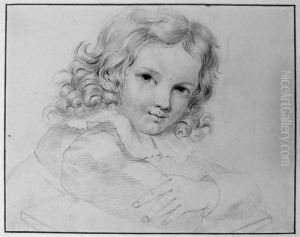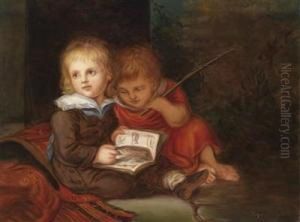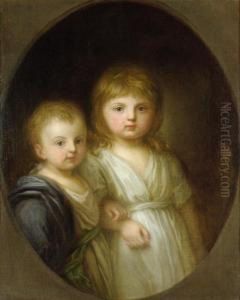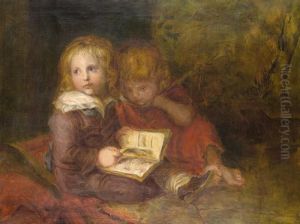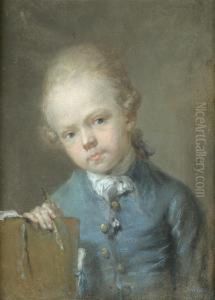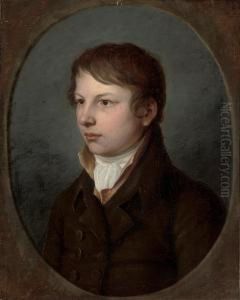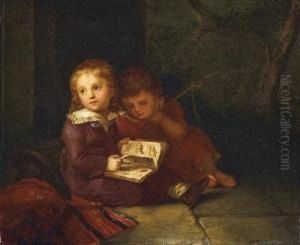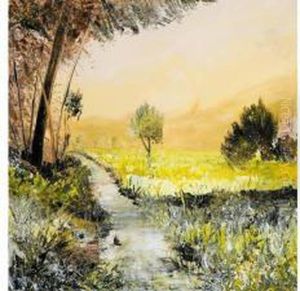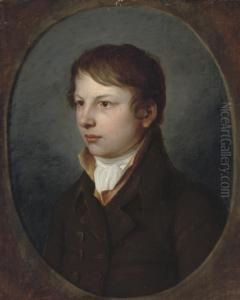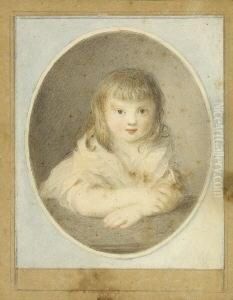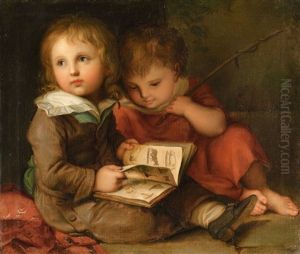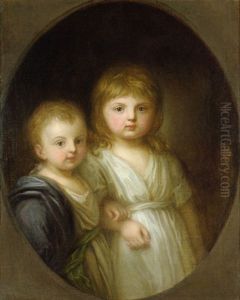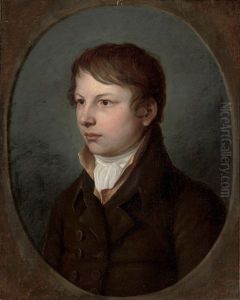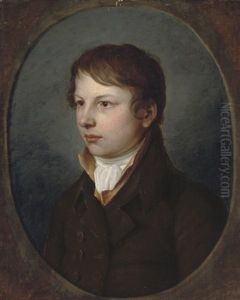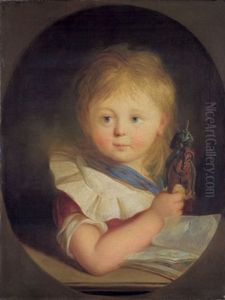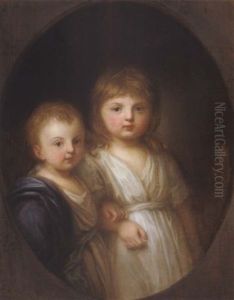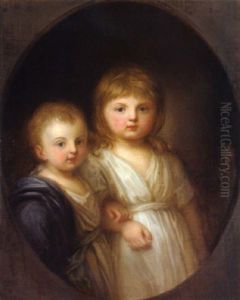Christian Leberecht Vogel Paintings
Christian Leberecht Vogel was a distinguished German painter and educator, born on April 4, 1752, in Dresden, Saxony. He was renowned for his contributions to portrait and genre painting during the late 18th and early 19th centuries. Vogel's artistic journey began under the guidance of his father, Christian Vogel, who was a painter and engraver. This initial exposure to art at a young age laid the foundation for his future career.
Vogel's formal education in art commenced at the Dresden Academy of Fine Arts, where he was significantly influenced by the works of the old masters. His early work exhibited a strong emphasis on detail and a keen observation of nature, traits that would define his mature style. Vogel's talent and dedication soon earned him recognition, and in 1777, he was awarded a scholarship to further his studies in Italy. His time in Italy, particularly in Rome, was transformative. He was deeply influenced by the classical and Renaissance art he encountered, which further refined his approach to painting.
Upon returning to Dresden, Vogel established himself as a prominent portrait painter. He was particularly adept at capturing the likeness and personality of his subjects, making his portraits highly sought after by the nobility and leading figures of his time. Vogel's genre paintings, which often depicted scenes of everyday life with a keen eye for detail and emotion, also garnered acclaim. His ability to convey complex human emotions and narratives through his work set him apart from his contemporaries.
In addition to his painting career, Vogel was a passionate educator. In 1789, he was appointed professor at the Dresden Academy of Fine Arts, a position he held until his death. He was committed to nurturing the next generation of artists, emphasizing the importance of drawing from life and studying the works of the old masters. Vogel's teaching had a lasting impact on the academy and its students, contributing to the development of a vibrant artistic community in Dresden.
Christian Leberecht Vogel's contributions to art were not limited to his paintings. He was instrumental in the establishment of the Dresden Gallery, now known as the Gemäldegalerie Alte Meister, which houses one of the most significant collections of European painting. Vogel's efforts in promoting art and education left an indelible mark on the cultural landscape of Dresden and the broader art world.
Vogel passed away on January 26, 1816, in Dresden. His legacy endures through his paintings, which continue to be celebrated for their technical mastery and emotional depth. Vogel's life and work remain a testament to his passion for art and his commitment to sharing its beauty with the world.
